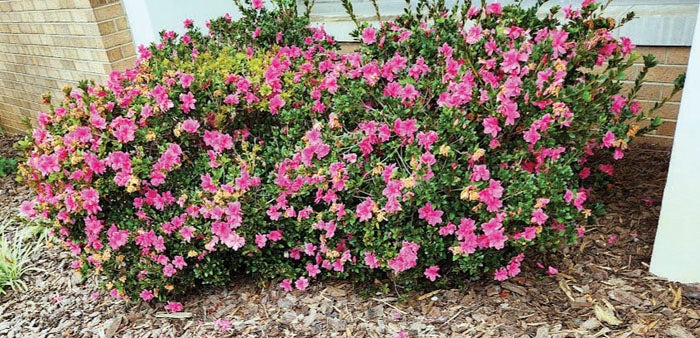H&G Q&A: Questions about seeding, planting and pruning
Published 12:00 am Saturday, September 30, 2023

- Encore azaleas
Generally, September is a slow month for consumer gardening questions. However, when I’m out and about I still receive a variety of horticultural and other plant-related questions. Below are a few inquiries from the public about various issues posed to me that may be of interest.
Question: Is it too late to plant fescue grass? What are the seeding rates for fescue seed?
Answer: No, you can still plant fescue, but don’t wait too late. Over-seeding thin lawn areas use about 3 pounds per 1,000 square feet. A new lawn or bare areas should receive about 7 pounds per 1,000 square feet. Always buy some extra seed because there will be spots that you will miss during reseeding.
Question: I have azaleas that are in full bloom now. They are blooming more now than they did in the spring. The plants are getting out of hand and need some pruning. When is the best time to prune this azalea?
Answer: Certain cultivars of Encore and other re-blooming type azaleas are now in full bloom. This type of azalea typically blooms in the spring and again into the fall. Its best to prune Encore azaleas in the spring after they bloom.
Question: I have a holly bush that is growing too large, almost like a tree and I want to cut it back. I don’t want to kill it, but I want to severely prune it and let it come back as a smaller shrub. When is the best time to cut it back severely?
Answer: The best time would be in early spring during mid to late March. Cutting it back in the fall may subject the plant to temperature extremes causing damage to newly emerging summer sprouts.
Question: I have daylilies and other perennials in my garden that need to be divided. Is now a good time to divide these plants?
Answer: Now is a good time to divide and replant perennials. Dividing them now gives the plants time to re-establish an extensive root system necessary for good growth in the spring and summer months. Daylilies, hostas and coneflowers must be divided every three years to maintain vigor and bloom production.
Darrell Blackwelder is the retired horticulture agent and director with the North Carolina Cooperative Extension Service in Rowan County. Contact him at deblackw@ncsu.edu.




